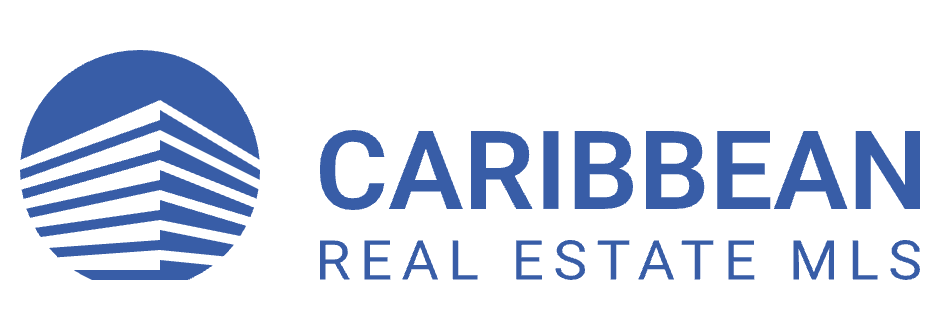Dreaming of your own slice of paradise? Buying property in the Caribbean might be your ticket to a life of sun-soaked beaches and year-round tropical bliss. But it’s not all about sipping cocktails by the sea—there’s a process to making that dream a reality.
You’ll need to navigate the Caribbean property market, understand the varying real estate investment options, and get to grips with the local regulations. Knowing your residency and citizenship possibilities is key, whether you’re eyeing a vacation home or considering a more permanent move.
Ready to start? Let’s jump into how you can confidently purchase your Caribbean home and embrace the island lifestyle you’ve been longing for. Your paradise awaits.
Benefits of Buying Property in the Caribbean
Beautiful Beaches and Natural Landscapes
You’re not just buying property; you’re gaining access to some of the world’s most stunning natural vistas. The Caribbean region is a world of pristine beaches, crystal-clear waters, and lush tropical landscapes. In this tranquil setting, you can immerse yourself in an array of outdoor activities—from scuba diving to sailing, there’s no shortage of adventures. The vibrant tourist market here is a testament to the endless beauty the Caribbean has to offer.
- Spectacular beaches and water sports opportunities
- Unique biodiversity and engaging eco-tourism activities
- Aesthetic benefits that enhance property’s visual appeal and value
Warm Climate
Imagine waking up to a warm, sunlit day almost every morning. The Caribbean is renowned for its consistent tropical climate, which is a huge draw for those seeking a reprieve from more temperate zones. The year-round sunshine is not just good for the soul; it’s also advantageous for maintaining your property. There’s a reduced need for heating systems, and solar options are practical, making it energy-efficient and kind to your wallet.
- Year-round temperate weather conditions
- Lower energy costs due to the abundance of natural warmth and sunlight
- A relaxed lifestyle that comes with sunny weather
Investment Potential
Properties in the Caribbean offer considerable investment potential. With a steady appreciation in the property market, the region promises both short-term gains through rentals and long-term benefits from resale value. Many islands encourage investment through tax incentives, and some even offer the opportunity to obtain citizenship for investments as low as $200,000. Real estate investments in the Caribbean not only come with a luxurious lifestyle but also financial advantages.
- High demand for rental properties leading to profitable yield rates
- Opportunities for substantial capital gains over time
- Access to dual citizenship and visa-free travel to over 100 countries
By investing in Caribbean real estate, you’re setting the stage for a lifestyle infused with natural beauty, warm days, and sound financial prospects. Whether you seek personal enjoyment or income-generating assets, the Caribbean might hold the key to revealing your real estate ambitions.
Factors to Consider Before Buying Property in the Caribbean

Researching the Local Real Estate Market
Before setting your heart on a Caribbean property, it’s crucial to dive deep into the region’s real estate market. Understand market trends and identify areas with high appreciation rates. Research local investment hotspots and stay updated on changes in property prices across different islands, which can be influenced by factors like tourism demand and economic stability. Islands like St. Barts and Turks & Caicos may command higher prices due to exclusivity, while others like Dominica offer more budget-friendly options. Key points to consider include:
- Property Values: Research current listings to gauge what’s available within your budget.
- Appreciation Prospects: Look for areas showing signs of growth or development.
- Rental Market: If you’re considering renting out your property, investigate local rental demand and potential yields.
Legal Requirements and Restrictions
Legal considerations are paramount when buying property abroad. Each Caribbean island has its own set of laws regulating foreign property ownership. For instance, in the British Virgin Islands, non-nationals require a Non-Belonger Land Holding License, while Tobago restricts foreign purchases to certain development areas without a license. Always check:
- Ownership Policies: Verify if the island restricts foreign ownership or requires special permits.
- Transaction Legality: Ensure the property title is clear and enlist a local lawyer to review contracts and navigate the purchase process.
- Residency Factors: Some islands offer citizenship or residency options through property investment.
Understanding Property Ownership
Comprehending the nuances of property ownership in the Caribbean ensures you make a legally sound and financially viable investment. Mortgages are available from major banks like Scotia Bank and CIBC First Caribbean International Bank, with loans ranging from $250,000 to $2 million over 15 to 20 years. Interest rates may vary from 0.50% to 3.5% per annum. Consider these elements:
- Mortgage Availability: Secure pre-approval if you require financing for the purchase.
- Ownership Costs: Anticipate additional costs such as attorney and agent fees.
- Tax Incentives: Some islands offer tax benefits for property owners which can impact the overall affordability of your investment.
Engaging with a reputable real estate agent can provide you with tailored insights and guidance to navigate these critical considerations effectively.
Popular Caribbean Islands for Property Investment

The Bahamas
The Bahamas epitomize the allure of tropical living, drawing millions annually with its vibrant culture and pristine beaches. Your exploration of investment opportunities here is met with a myriad of advantages:
- Revenue Potential: The tourism sector welcomes approximately 9 million visitors yearly, fostering substantial rental market demand.
- High-Net-Worth Appeal: A selection of luxury properties makes the Bahamas a magnet for affluent investors.
- Real Property Tax: While The Bahamas enjoy tax haven status, they impose property tax based on property value.
Imagine owning oceanfront property where the demand often spikes prices—particularly those granting beach access—a truly sought-after asset by both investors and visitors.
Cayman Islands
The Cayman Islands stand out as a beacon of financial stability and luxury. These shores are synonymous with exclusive resort living and offer compelling reasons to invest:
- International Tax Haven: No direct taxation on income, capital gains, or corporations.
- Stable Economy: Robust financial services industry ensures economic resilience.
- Rental Returns: Lucrative annual yields of up to 8%, thanks to a thriving rental market.
| Type of Property | Starting Cost |
|---|---|
| Two-bedroom Apartment | USD 400,000 |
| Condominiums | USD 3,000,000 |
As you ponder locations for your investment, factor in the Cayman Islands’ international-level healthcare facilities and the vibrant lifestyle that a family of four enjoys on a monthly budget surpassing USD 5,000, excluding rent.
Barbados
Barbados, with its stable economy and welcoming climate, offers more than just an escape from daily life; it’s a prime spot for property investors:
- Easy Access: Gateway to international destinations like the US, Canada, the UK, and Europe.
- Tax Incentives: Various opportunities to maximize investment returns.
- High Demand: Sought-after by wealthy tourists, meaning property in Barbados can be an astute investment.
Notably, real estate prices in Barbados start at USD 2,000 per square meter, marking it as a premium locale in the Caribbean property market.
Jamaica
In Jamaica, the vibrant culture and lush landscapes are just the beginning. Real estate here carries its own set of benefits:
- Cultural Hub: Strong demand for properties due to Jamaica’s tourist and cultural appeal.
- Investment Options: A wide range of property types, from beachfront villas to urban apartments.
Being aware that Jamaica is among the pricier Caribbean locations for real estate, with prices reflecting its popularity and demand, is vital.
St. Lucia
St. Lucia’s allure lies in its natural beauty, with iconic pitons and lush rainforests. As an investment destination, it offers:
- Growth Potential: An emerging market with room for value appreciation.
- Diverse Offerings: Options range from luxury resorts to more modest homes, catering to a broad investor spectrum.
St. Lucia’s relatively lower entry point for property investment compared to more established markets provides an attractive opportunity for those looking for potential growth in the Caribbean basin.
Steps to Buying Property in the Caribbean

Establishing a Budget
Before diving into the Caribbean property market, you need to nail down your budget. Include the purchase price, but also factor in closing costs such as legal fees, valuation and survey reports, and potential property taxes. Remember, each island may have different costs associated with ownership like mandatory residency permits or stamp duties which can impact your overall budget.
Choosing the Right Location
The Caribbean is diverse, and location is key to a solid investment. Determine what’s important to you – proximity to amenities, lifestyle preferences, or rental potential. Islands like the Bahamas offer stable economies and tax incentives, making them prime choices for many investors. In contrast, up-and-coming areas may offer more affordable options with potential for higher long-term gains.
Engaging a Local Real Estate Agent
Local expertise is invaluable, so partner with a reputable real estate agent in the Caribbean. They’ll navigate the nuances of each island’s property market and identify listings that align with your objectives. Your agent will also have insight into properties that offer the best value, whether you’re looking for a vacation home or an investment property.
Conducting Property Inspections
Don’t skip on conducting a thorough property inspection. This should illuminate any potential issues and ensure the property adheres to local building codes and standards. It’s not just about the structure itself but also about understanding the land, its legal boundaries, and any encroachment that could cause headaches down the road.
Negotiating the Purchase Price
Armed with inspection details and market knowledge, you’ll be in a stronger position to negotiate. Use your agent’s expertise to understand what’s reasonable based on comparable sales and the current market trend. Precision in this step can save you significant money and set the stage for a fruitful investment.
Completing the Legal Process
Finally, the legal process is where your dream becomes a reality. This involves transferring property titles, settling all necessary fees, and adhering to local regulations. Ensure all documentation is properly reviewed by your lawyer to avoid future legal issues. Timely completion of this step is critical – it secures your property and establishes your ownership under Caribbean law.
Financing Options for Buying Property in the Caribbean

When you’re looking to purchase your dream home in the Caribbean, understanding your financing options is crucial. Here’s a breakdown of the different methods you can explore to secure your slice of paradise.
Traditional Mortgage Loans
With traditional mortgage loans, you’re looking at established financial products offered by banks and financial institutions. These loans are typically available for terms up to 20 years, and the amount you can borrow ranges from $250,000 to $2 million. The interest rates vary but tend to be between 0.50% to 3.5% annually. Here’s what you need to know:
- Loans are subject to your credit history, income stability, and down payment capability.
- Caribbean banks like Scotia Bank and CIBC First Caribbean International Bank play a significant role.
- Residents of Canada, for instance, have access to cross-border mortgage services through banks like RBC with options to get pre-approvals before you begin your property hunt. Remember, while traditional loans are familiar ground, they often require thorough financial scrutiny.
Seller Financing
Seller financing is a more flexible option and acts as an alternative to conventional bank loans: – In this arrangement, you make payments directly to the seller, who essentially acts as the lender.
- This option can potentially offer easier qualification criteria and negotiable terms, depending on the seller’s requirements.
- Typically involves a contractual agreement where the property serves as security for the loan. Opting for seller financing means you might bypass some of the red tape associated with traditional lending.
Home Equity Loans
If you already own property, home equity loans can be a strategic way to finance your Caribbean purchase: – You borrow against the equity you have in your current home.
- Interest rates for home equity loans may be more favorable compared to other loan types, contingent on market conditions and your financial standing.
- It’s also worth noting that this option can provide a more straightforward path to funding, as you’re leveraging an asset you already have.
Home equity loans present an opportunity to tap into your existing assets for the purpose of investing in Caribbean real estate.
Essential Tips for Successful Property Investment

Conduct Due Diligence
Your journey to owning Caribbean property must start with rigorous due diligence. Thorough research is imperative to understand the market dynamics, property prices, and legal frameworks of the region. Here’s what you need to keep in mind:
- Check property appreciation rates to gauge potential investment returns.
- Inspect the physical condition of the property to avoid costly repairs.
- Review the title and any existing liens to confirm the seller’s right to transfer ownership.
- Validate the investment’s viability by assessing the local rental laws, should you wish to lease the property.
- Enlist services like Immigrant Invest’s confidential Due Diligence check to minimize the risk of transaction failure, which, as per their data, is reduced to as low as 1%.
Prioritizing these steps will protect your investment and streamline the buying process.
Seek Professional Advice
Connecting with experts can greatly enhance the likelihood of a successful acquisition. Here’s why professional guidance is non-negotiable:
- Local real estate attorneys can navigate the country-specific property laws and conveyancing procedures.
- Real estate agents with expertise in Caribbean markets can identify properties that align with your investment goals.
- Consultancy firms offer comprehensive services, encompassing both real estate purchases and immigration advice if citizenship by investment is your goal.
Leverage their knowledge base to make informed decisions that align with your financial and lifestyle objectives.
Consider Rental Income Opportunities
When investing in Caribbean real estate, the potential for rental income is a critical aspect. Reflect on the following to capitalize on this opportunity:
- Tourist hotspots generally yield higher rental incomes during peak seasons.
- Diversify your investment through short-term rentals like Airbnb or long-term leases, depending on the location and type of property.
- Ensure your property offers amenities and conveniences that are in high demand among renters.
This proactive approach will not only cover your maintenance costs but may also provide a steady stream of passive income.
Conclusion
Venturing into the Caribbean real estate market can be a rewarding decision. You’ve now got the knowledge to navigate the financing world with confidence. Remember, each option offers unique benefits and understanding the specifics of mortgages, seller financing, and home equity loans will serve you well. Don’t overlook the value of due diligence; it’s your key to a successful investment. With professional guidance and a strategic approach to location and rental potential, you’re well on your way to securing your slice of paradise. Ready to take the leap? Your Caribbean property awaits.






